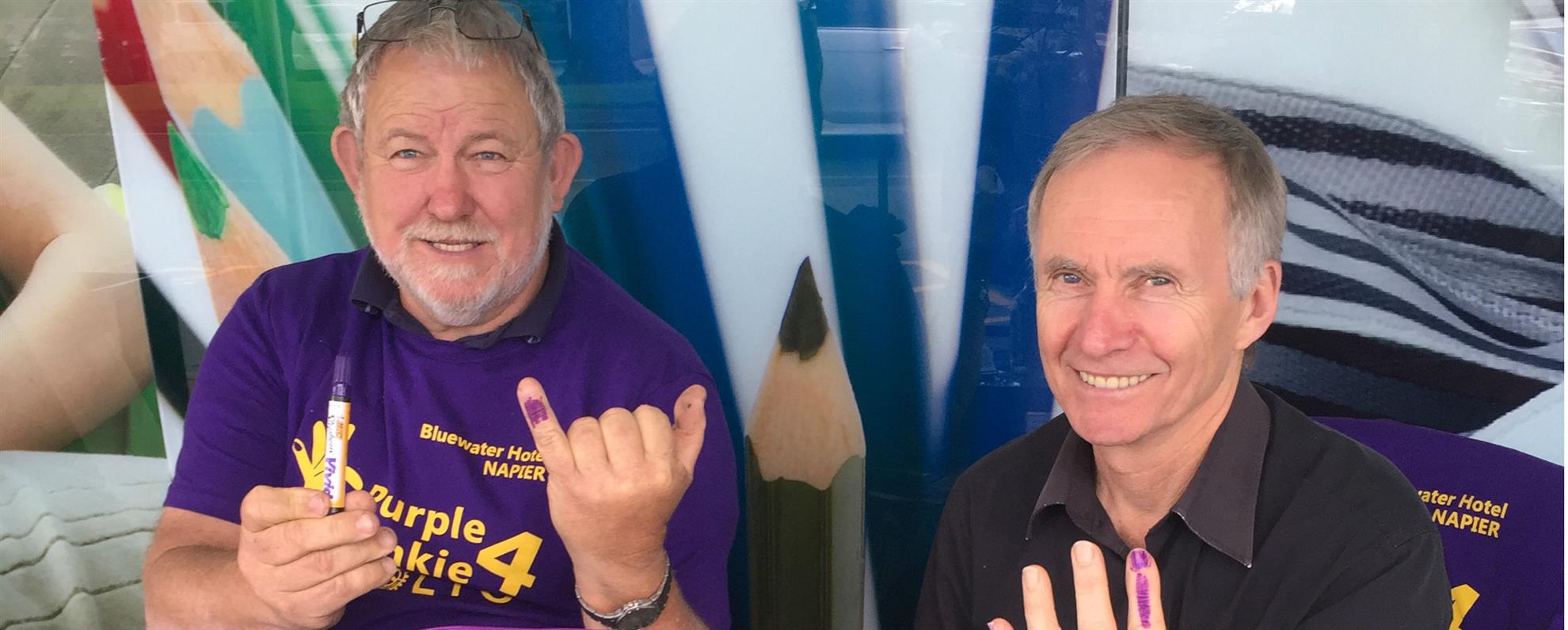Many New Zealanders aged over 60 years have personal stories to tell about polio. Friends in callipers and wheelchairs, family members who died. Schools and swimming pools closed and public gatherings banned as epidemics swept the county.
Polio, or poliomyelitis to give it it’s full name, is a virus that is spread from person to person, typically through contaminated water. There is no cure for polio but there are safe and highly effective vaccines to prevent the disease. The vaccines were invented in the mid-1950’s and their widespread use in our country is the reason why today, children don’t even know what polio is!
In 1988 Rotary made a pledge to the children of the world that they would wipe this disease from the face of the earth. Since then, Rotary and its partners have vaccinated over 2.5 billion children reducing the number of cases from 350,000/year in the mid-1980’s to only 22 in 2017, and those were in only two countries, Afghanistan and Pakistan.
Eradication is “This Close” but the final stage of the programme is the most expensive and there remains a funding shortfall. This is why Rotarians continue to donate personally to, and fundraise within their communities for, this programme. And what an incentive we have! The Bill and Melinda Gates Foundation triple every dollar Rotary raise.
But the fight is not over. Not only must we reduce the number of cases globally to zero but we must keep it that way for at least three years before we can declare eradication. During this time water and sewerage will continued to be analysed to check there is no virus hiding away, ready to re-emerge. Only when the World Health Organization is satisfied that the virus has gone from every corner of the globe will eradication be declared and vaccines can be withdrawn. It is estimated that eradication could save the world US$25 billion in the next 20 years. How many more lives could we save with that money free up for health programmes?
Much of Rotary’s fundraising is focused around World Polio Day on 24 October each year. Around this time, you may see Rotarians dressed in purple in schools educating children who may have never heard of polio or, waving buckets in the street to raise money.

“Why purple?” you may ask.
In developing countries millions of children are vaccinated in the course of a few days in frequent, mass polio vaccination campaigns.
It is important that children do not receive duplicate vaccine. Once the child has received two drops of vaccine (by mouth) their left little finger (or ‘pinkie’) is painted with an indelible purple ink. Vaccinators always check a child’s finger before administering polio vaccine. If it’s purple they do not vaccinate.
If you are interested in polio eradication what can you do?
- Learn. Get informed and help make polio a subject of conversation. Get the facts here.
- Share. Most people have heard of polio but do not know that it still affects children in some countries.
- Donate. Every donation helps us obtain the vaccines, transport and materials needed in the fight against polio. You can donate through Rotary Matamata. Just contact us. Remember ever dollar you donate is turned into three by Bill and Melinda Gates!
